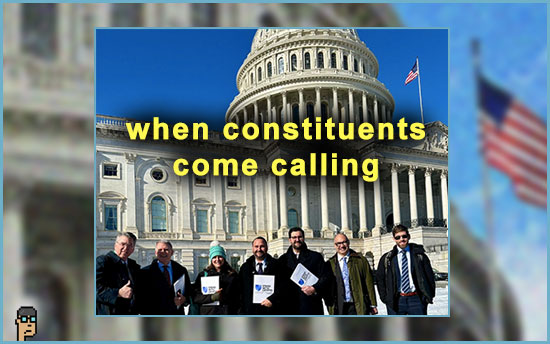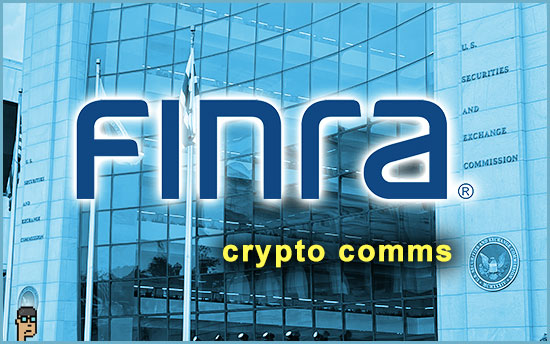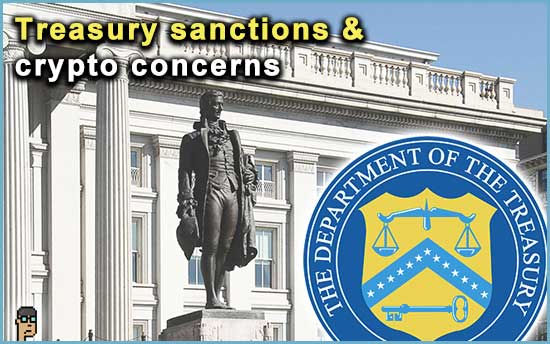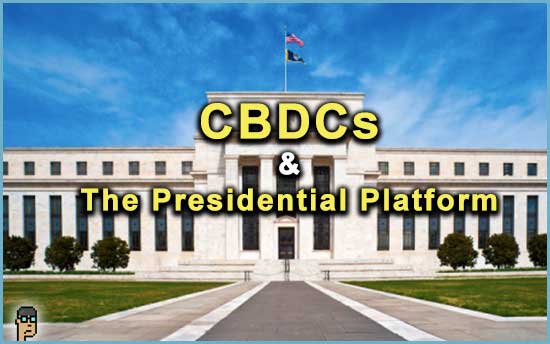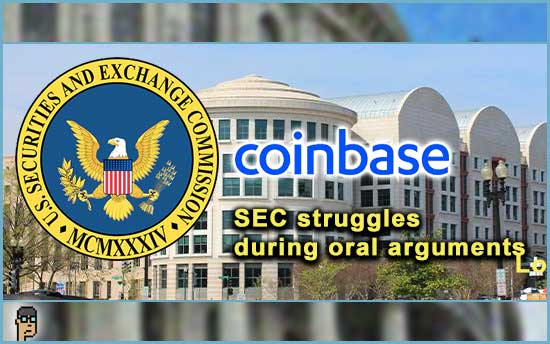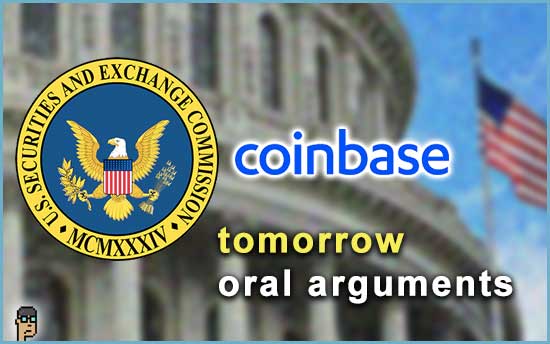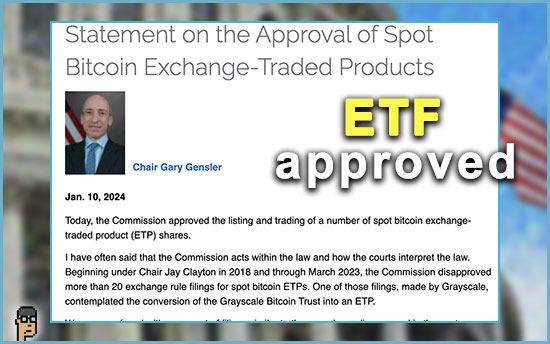Bitcoin ETF approved
The drama is over.
Bitcoin spot market exchange traded funds (ETFs) now exist so that if investors want to easily invest in Bitcoin through their favorite 401k or brokerage account, they can. Securities and Exchange Commission (SEC) Chair Gary Gensler (D) made the announcement shortly after the stock market closed saying grudgingly in a lengthy statement, “I feel the most sustainable path forward is to approve the listing and trading of these spot bitcoin ETP shares.” Read it.
The Commission’s vote on the ETF applications was 3-2 with Chair Gensler voting with the two Republican commissioners. See the “Jan. 10” vote here.
what you should know: If you will miss this storyline, the drama will continue when other digital assets such as Ether or XRP and their ETFs come up for review by the Commission.
Bitcoin ETF approved – reaction
Shortly after Gensler, Republican SEC Commissioner Hester Peirce expressed a sigh of relief in a statement of her own: “Today marks the end of an unnecessary, but consequential, saga. More than ten years after the filing of the first spot bitcoin exchange-traded product (‘ETP’) application, the Commission finally has approved multiple applications by exchanges to allow the listing and trading of spot bitcoin ETPs. This saga likely would have spanned well beyond a decade were it not for the DC Circuit-ex-machina.[link] You need not be a seasoned securities lawyer to spot the difference in treatment of bitcoin-related ETP applications compared to the many other ETP applications that have been routinely filed and approved over the past decade.” Read more.
Senator Cynthia Lummis (R, WY) said in a statement, “The SEC’s decision to comply with the Grayscale court ruling and approve the pending Bitcoin spot ETFs to be listed on registered national securities exchanges is a historic decision for the crypto asset community. It will provide millions of Americans with easier access to crypto assets and allow them to benefit from professional managers and more competitive fees.”
House Financial Services Committee Chair Patrick McHenry (R, NC) and French Hill (R, AR), Chairman of the HFS Digital Assets, Financial Technology and Inclusion Subcommittee said in a statement, “While legislation to provide clarity and certainty for digital assets remains necessary, the steps taken today are a significant improvement over the SEC’s track record of regulation by enforcement. We are pleased that investors and our markets will finally be afforded greater access to this generational technology. We remain committed to enhancing consumer protection in the digital asset markets through comprehensive market structure and payment stablecoin legislation.”
Rep. Wiley Nickel (D, NC) said in a statement, “While I’m pleased with Chairman Gensler’s decision, it’s clear that his regulation by enforcement battle is losing in the courts and in public opinion. Congress has a role to play in pushing back against the SEC’s untenable approach on digital assets.”
Rep. Mike Flood (R, NE) said, “As I stated in my September letter to the SEC, the DC Court of Appeals spoke with clarity on this issue: the SEC’s initial denial of Grayscale’s application was ‘unlawful.’ I am glad that in the end common-sense and the rule of law won out, and retail investors across the country will get greater choice as a result.”
Rep. John Rose (R, TN) said, “It is clear that the American people have a desire to invest in this new technology, and our laws and regulations should reflect and welcome that desire – not shun it like SEC Chair Gary Gensler has done for too long. I look forward to continuing our work on the House Financial Services Committee welcoming similar digital asset innovation, like passing the FIT for 21st Century Act, which will provide much-needed regulatory stability for digital assets.”
more tips:
Financial Services Committee Republicans Demand Briefing from SEC by January 17 on Compromised X Account, Unauthorized Bitcoin ETF Post – house.gov
Continue reading “BItcoin Spot Market ETFs Approved – Finally; SRO Details Compliance For Finance Pros”

